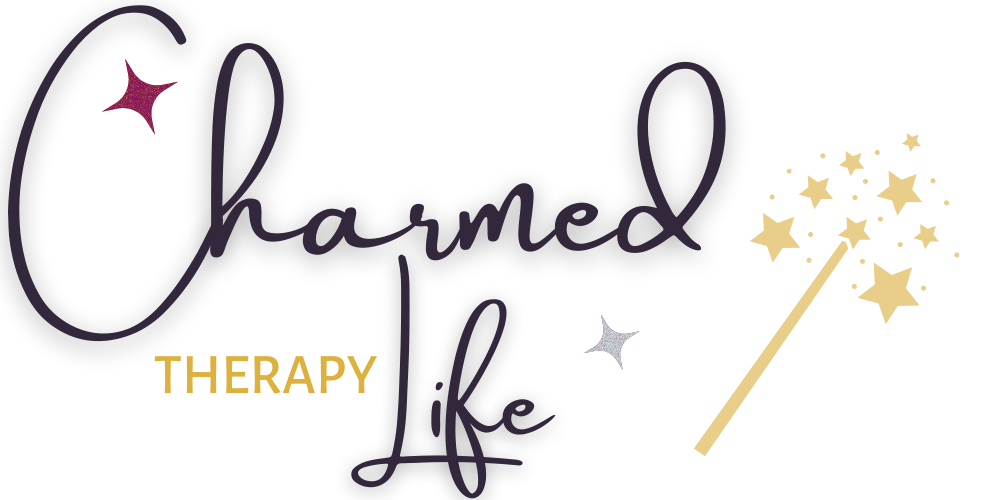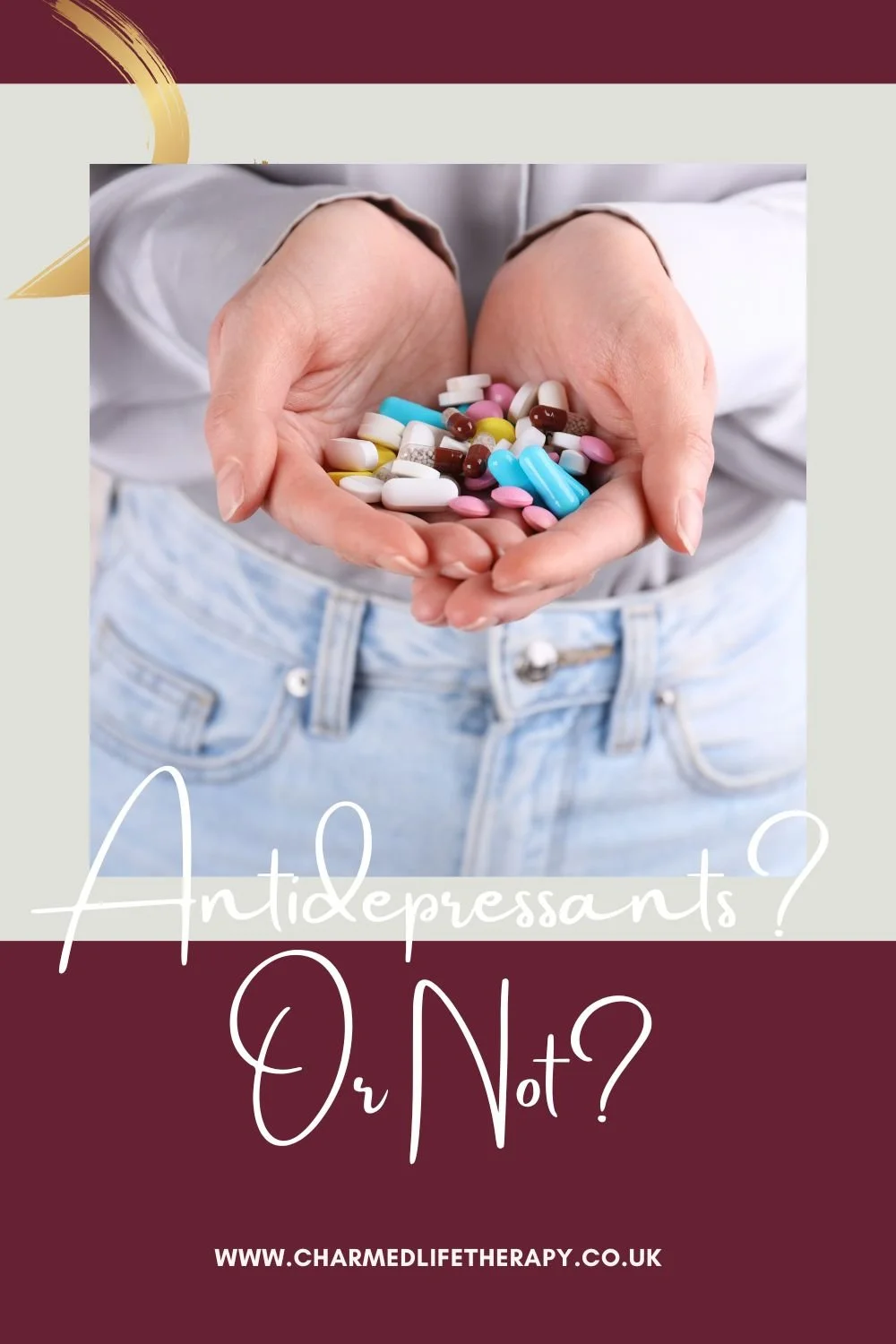Should I Take Antidepressants or Not?
On Pinterest? Pin this graphic if you liked this post.
Book your discovery zoom call now. Hit the Button!
What Do I Need to Know About Antidepressants?
I am currently training in a new methodology (The Rewind Technique - more information coming soon) to add to my RTT offering and was given some very useful information as part of the course, which I am very keen to share with you here. Thanks to Mark Tyrrell!
As somebody who was subject to antidepressants for a long time, without any real clue what was being done to me, it’s really important to me that anyone who is being presented antidepressants as an option in their treatment, knows what the whole picture is.
So here are 5 facts for you below:
Antidepressants Can Be Harmful
Many people are injured by the medical products they use. From anxiety and sleep disorders to sexual dysfunction and suicidal ideation, all antidepressants products carry a risk of side effects. It’s amazing, and terrifying, how often doctors don’t even discuss the potential for harm with their patients.
It’s possible, and even probable, for some side effects to be discounted as symptoms of the depression, rather than effects of the medication. Doctors are subjected to some of the most sophisticated marketing you’ll find anywhere on the planet. And they are not necessarily pharmacological experts who understand exactly how every drug they prescribe works.
Although medical drugs unquestionably do save many lives, and improve the quality of many more, it’s important to remember that there is a huge, if not always acknowledged, financial incentive for drug companies to develop medications that have to be taken ‘for life’. When you stop taking a drug (because you’re better, hurrah!), the manufacturer makes no more money out of you.
But make no mistake, drugs can be dangerous and side effects are not as rare as some people (are led to?) believe.
Medicinal drug-induced deaths are now the fourth cause of death in medical settings. The idea that medical drugs are unequivocally good for us is, excuse the pun, dead in the water.
The Premise of Antidepressant Usage is Unproven
Drug companies currently spend around 3 billion pounds a year promoting the notion that depression is a purely biological illness that can be effectively treated only by (in many cases) long term usage of their products.
The first thing I tell my clients is that there is no evidence, despite the billions spent on marketing the idea, that clinical depression is caused through ‘faulty biology’ or ‘bad genes’.
I tell them depression is not like Type 1 diabetes, although some doctors have been encouraged to use that analogy. I might also add that all trials of these antidepressants are conducted by the drug companies themselves, and these trials are not currently independently assessed, so they can (and do, therefore) choose not to publish studies that show only a weak or no advantage of their products over placebo.
No Antidepressant Is More or Less Effective Than Any Other
Despite nearly 40 years of development, no single antidepressant has been shown to be any more efficacious than any other. So the newer SSRIs are not more effective or less effective than the older style Tricyclic (TCAs) or Monoamine Oxidase Inhibitors (MAOIs) of old.
The newer ones don’t work any better, although some people believe they are less toxic. However, there is evidence that switching between antidepressants to find the one that works best for the individual produces better outcomes overall.
Dosage Makes No Difference to Outcome
Sometimes clients tell me their doctor wants them to increase their dosage. In such cases, I generally suggest that if they feel they have to take these products, a lower dosage is always better than a higher dosage.
Why? Because it’s been found that higher dosage antidepressants (taking into account the placebo effect of knowing you are on a more powerful course) make no difference to outcome.
I always advise they consume these drugs at lower dosages because toxicity will be less and side effects should be weaker on the lower dosage. It’s a myth that a person will get better quicker if they are on a higher dosage of antidepressant – but it’s a dangerous myth.
Effective Psychotherapy is Better at Preventing Relapse Than Drugs
Effective psychotherapy also changes the way the brain works, but in a good way and without side effects. And research has found that because it teaches skills that can be used for life, it is much better at preventing relapse into depression than antidepressants.
A common withdrawal symptom of coming off antidepressants is feeling low. This is because the brain is trying to adjust to life without the drug. This withdrawal symptom is often not recognized for what it is, and is instead interpreted as an indication that the person needs to go back to taking the drug, because they are still ‘depressed underneath’.
Remember that!
So it’s worth waiting for the withdrawal symptoms to subside before any decision is made regarding further consumption of these drugs.
I might add that I am not telling others that they must or mustn’t take these drugs. I also say that if they do take them, I will still gladly help them psychotherapeutically, although that might not be as ideal as seeing them ‘clean’.
Some psychotherapists might consider it none of their business to comment on whether their clients do or don’t take psychotropic drugs. But considering the numbers of patients who are injured or at risk of being injured taking these products, I think we have a duty to at least provide a counterbalanced view if asked.
When it comes down to it, you can get better regardless of not taking antidepressants.
The facts above are provided by Mark Tyrrell (hypnotherapist – Uncommon Practitioners)
Just some final thoughts from me:
The 3 Major Causes of Depression are:
The harsh, hurtful, critical things we say to ourselves on a moment by moment basis.
Not following (or knowing) your heart’s desire.
And feeling disconnected, or living in fear of being rejected. And antidepressants don’t fix any of those things.
A few years ago Tom Cruise was widely lambasted for his theories on people such as the actress Brooke Shields, taking antidepressants. Brooke was suffering with severe post-natal depression at the time. The way he went about it was far from ideal, and the fervour with which he spoke probably caused many to discount his opinion, but he wasn’t actually entirely wrong. And when I say that, I am not saying they don’t have a place, particularly when someone is teetering on the edge and needs immediate intervention of some immediate kind. But…
Antidepressants in themselves cause a chemical imbalance in the brain, and they have been known to lead to suicidal ideation. Over the years I took them, I suffered many adverse reactions at a time when I was already vulnerable. I remember taking Seroxat and literally being paralysed with panic. I just couldn’t move any which way because my stress was off the charts.
I remember trying to explain the way I felt to my mum, and it was like the only thing I could move was my eyes.
On another occasion, I remember a trainee doctor trying to take blood from my hand, after he’d tried many other veins, because they had put me on lithium, and it’s so dangerous they need to regularly monitor your bloodwork. I was feeling sick and close to passing out at the time. And just so very ready to give up for good.
So many times in my life when I was put on antidepressants, I was aware I was presenting a false high (what to some looked like normal - happy), but inside, nothing was different. It’s like having an out-of-body experience. Or feeling schizophrenic. It’s a horrible feeling, very isolating.
Yeah, the drugs did x,y,z - but…
Ask Robbie Williams about Efexor and he will tell you it was great, but it absolutely killed his libido. Ask someone put on Prozac, who was struggling to connect with her husband, whether it worked, and she will probably tell you no, nothing changed, except I stopped caring about the problem.
I will never judge a client for being on antidepressants. And I will never advise a client to come off antidepressants without consultation. But too many are prescribed by people with no real knowledge. And they do not address the underlying issues. At best, they make you manageable for other people.
There are better options for treatment. And I can tell you, hand on my heart, that the only time I ever made real progress was when I took matters into my own hands and sought out the answers for myself, without pharmacological help.
Therapies like RTT, which exposes the root cause of your depression, managing your diet, eating plenty of protein, cutting out sugar, basically balancing your blood sugar, so you are not getting the highs and lows. Watching your caffeine and alcohol intake. Lots of water. And fibre. Investigating what is happening hormonally. Getting outside. Talking to others. Self-Love. Meditation, Adaptogens like Ashwagandha (if not contraindicated), and so many other exciting avenues, are so much safer and more permanent solutions. And they won’t make you feel like shit either!
Make your choice based on as much advice and research as you can. And don’t stay on antidepressants long-term. Nobody needs anti-depressants for life.
The idea that depression is caused by a chemical imbalance in your brain was never proven science.
My personal belief is depression is a symptom, not a condition, and requires investigation of the source for long-term success.
About Me
Hello, I’m Anne-Marie. I am a RTT Practitioner, Romance Author, Championship Dog Show Judge.
I have a lot going on! But my primary focus is helping people achieve their personal and professional goals, whatever they may be. If you’re struggling, I am the kind of person you want in your corner.
Click here to book your free discovery call now
Related Posts










Hoarding Explained: A Magical Solution